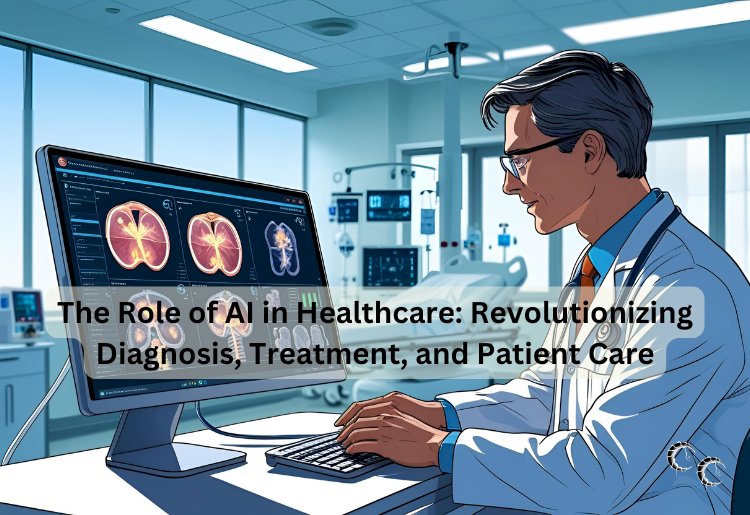The Role of AI in Healthcare: Revolutionizing Diagnosis, Treatment, and Patient Care

Artificial Intelligence (AI) is rapidly transforming the healthcare industry, reshaping how medical professionals diagnose illnesses, develop treatments, and provide patient care. By leveraging vast amounts of data and advanced algorithms, AI technologies are improving accuracy, efficiency, and accessibility in ways previously unimaginable.
AI-Powered Diagnosis
One of the most significant impacts of AI in healthcare is its ability to assist in diagnosing diseases. Machine learning models can analyze medical images—such as X-rays, MRIs, and CT scans—with remarkable precision, often detecting subtle abnormalities that might escape human eyes. AI systems also process patient data and genetic information to identify early signs of conditions like cancer, cardiovascular disease, and neurological disorders.
These capabilities help:
-
Reduce diagnostic errors
-
Accelerate the identification of diseases
-
Enable personalized treatment plans based on specific patient profiles
Enhancing Treatment Options
AI is revolutionizing treatment by supporting the development of personalized medicine. Algorithms can predict how patients will respond to various therapies, allowing doctors to tailor treatments for maximum effectiveness while minimizing side effects. AI also aids in drug discovery by analyzing molecular structures and biological data, speeding up the development of new medications.
Robotic surgery, guided by AI, is another breakthrough, offering surgeons enhanced precision and control, which often leads to faster recovery times and fewer complications.
Improving Patient Care and Management
AI-powered tools enhance patient care beyond diagnosis and treatment. Virtual health assistants and chatbots provide 24/7 support, answering patient questions and monitoring symptoms between visits. AI-driven predictive analytics help healthcare providers identify patients at risk of complications or hospital readmissions, enabling proactive interventions.
Additionally, AI streamlines administrative tasks such as scheduling, billing, and managing electronic health records, freeing up more time for clinicians to focus on direct patient care.
Challenges and Ethical Considerations
While AI offers immense potential, it also raises important challenges:
-
Ensuring data privacy and security
-
Addressing biases in AI algorithms that may affect care quality
-
Integrating AI tools seamlessly into existing healthcare workflows
-
Maintaining the human touch in patient interactions
Healthcare organizations must carefully navigate these issues to fully realize AI’s benefits.
Conclusion
AI is revolutionizing healthcare by enhancing diagnosis, personalizing treatments, and improving patient management. As technology continues to advance, it promises to make healthcare more precise, efficient, and accessible—ultimately leading to better outcomes for patients worldwide. Embracing AI responsibly will be key to unlocking its full potential in the medical field.






























